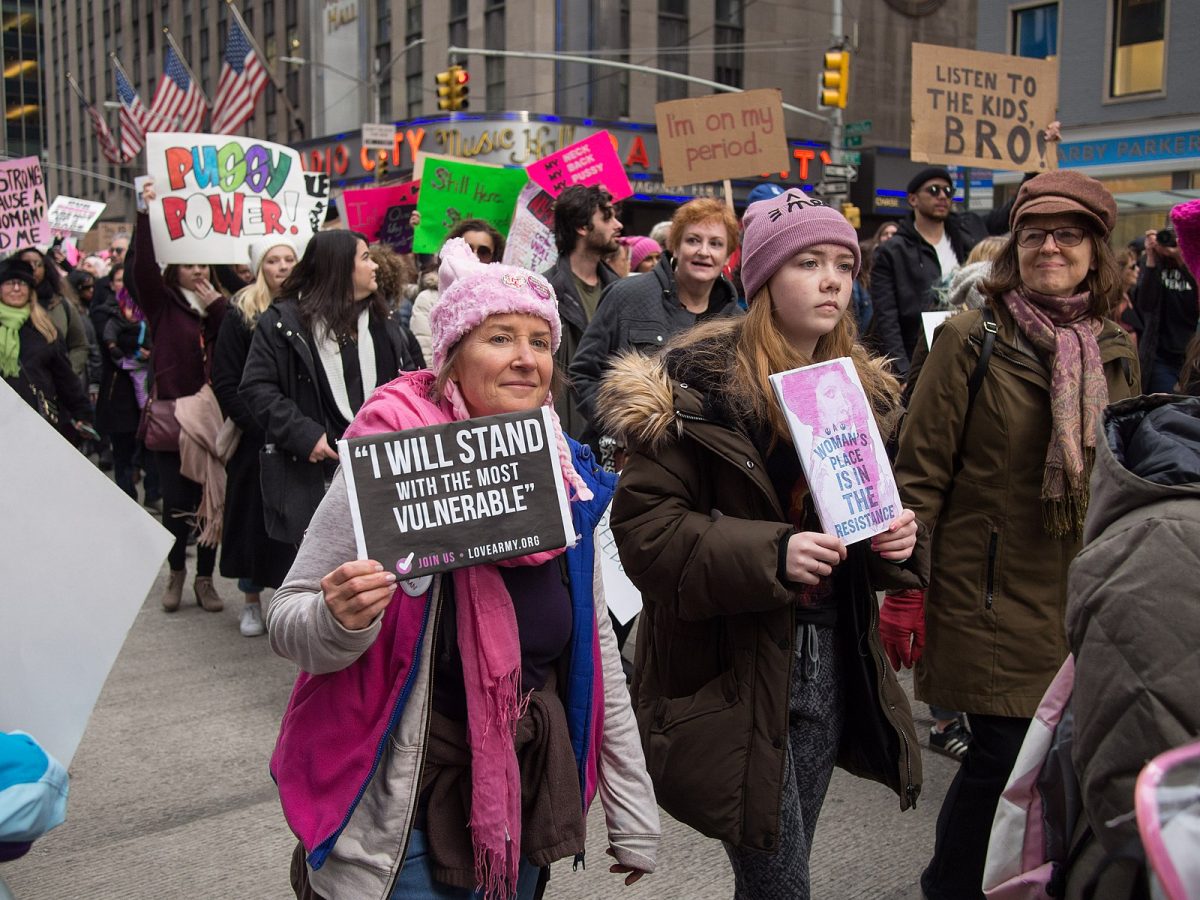In the summer of 2023, I worked at the second-largest prosecutor’s office in the country, actively participating in the Chicago Criminal Court System. I wasn’t in the downtown office — more in the northwestern part of the city and suburbs — but the courthouse was still full of violence and crime like I had never seen or comprehended before in my life. Each day was also full of inequality and disturbing incidents as well.
I have a thousand different stories on my tasks as a legal intern in the state department and the kinds of cases, defendants and complaining witnesses I saw. However, none so much stuck with me as one that was simply verbalized to me. I didn’t see it with my own two eyes. Thank God I hadn’t —I don’t think I would’ve coped very well.
I was walking out of a particularly harrowing verdict with my boss and mentor at the time. Despite haunting 911 audio I still hear in my dreams and the direct testimony of first responders and nurses, the defendant was found not guilty of 13 counts of sexual assault and rape. The judge said the complaining witness was too volatile on the stand. She didn’t speak any English.
I was very clearly disturbed and distraught when my mentor began to tell me that it was not the worst verdict she had ever seen. She told me about the time she was on a case involving the rape and assault of a 12-year-old girl. In Illinois, if the crime took place when you were under the age of 13, you do not have to appear or testify in court.
My mentor told me that during oral arguments, the defense’s entire case rested on the testimony of the 12-year-old’s promiscuity and mature appearance. In a sidebar with the attorneys, my mentor recalled the judge asking whether or not the 12-year-old actually looked over the age of 18. She said the defense responded yes, and even cracked a joke claiming the young girl was asking for it because she looked old enough.
The defendant in that case was found not guilty.
Blaming the actions of a woman — nay, a girl — for what she was wearing and where she was remains a viable defense in law. And victim blaming is still very much a part of the rape culture we all live in.
But of course, rather than teaching the men in our communities — our brothers, sons and fathers — not to rape nor to put their hands on another person, we continuously teach our women how to operate within rape culture. We teach them what not to wear, where not to be, what not to drink and how not to act. We teach them the intricate dance to move between the lines of empowerment and respectability. The choreography is passed down from woman to woman for generations and generations.
They say do not ask for it. Do not put yourself in a situation where a man can put his hands on you.
Why are they putting their hands on us in the first place?
I could write a whole column about how we need to teach people not to rape and why we need to teach children — and grown adults — about consent, but I would just be shouting into a void of fellow opinions columnists desperately attempting to get people to listen to them.
While, sure, I may be shouting into the void to a certain extent, I want to take a different approach to the conversation on rape culture. I would rather argue that we need to stop sexualizing our sisters. We need to stop objectifying the actions of all women and of all people. Until we do this, how can we begin to expect people to view women as humans rather than objects for sexual gratification?
I want to clarify that being sexual isn’t a bad thing. Your worth, validity and respectability is in no way contingent on your sexual promiscuity, just like it shouldn’t be contingent on your race or sexual orientation. Sexual liberation is a beautiful thing, and I hope it is something we can all attain. However, sexual liberation is not achievable until we can all achieve it. Nor is it achievable until the sexualization and fetishization of certain groups cease.
Young girls whose bodies hit puberty too early are objectified and sexualized. Like the little girl from the story who never received vindication, they are often seen as “asking for it,” despite their hormones being completely uncontrollable. Black women and Indigenous women, in the eyes of white supremacy and the patriarchy, lack value and are seen as “unrapeable.” Asian women are seen as “sexually submissive.” Bisexual women are seen as “promiscuous,” and lesbians are seen as only existing for men’s sexual fantasies. Sex workers are seen as lacking any sort of respectability, and therefore their stories of assault are “not legitimate.”
When all these groups are objectified, their stories of sexual violence are not taken in the same vein as white women. Their sexualization ultimately fuels the rape culture many white feminists reportedly work to tear apart.
One in every three Native women are raped in their lifetime, most often at the hands of white men who feel they are owed Indigenous bodies. One in every four Black girls are sexually abused before the age of 18. Bisexual women are twice as likely to experience sexual or intimate partner violence than heterosexual women. One in every two transgender individuals are sexually assaulted in their lifetimes. And globally, sex workers have a 45 to 75% chance of experiencing sexual violence while they work.
White feminism situates middle and upper-class white women and girls as the face of the anti-rape movement. And while their stories are important, so are the stories of everyone else who doesn’t meet the mark of a white feminist’s martyr. If we are going to move forward with an inclusive lens of feminism and recognize the intersectionality race, sexuality and other socioeconomic factors have with gender, we must recognize how the hypersexualization of certain demographics plays into rape culture. Without addressing the issue, we are not doing anything to dismantle the system that continuously lets men get away with their heinous actions.
There is a famous quote, attributed to no sole author or activist, that essentially says, “When someone is accustomed to privilege, equality feels like oppression.”
We must understand and highlight the interconnected systems of oppression that contribute to rape culture and how the objectification of racial and sexual minorities or other specific demographics of women and girls contributes to this fortification. All problems women face are feminist issues, not just the ones that white women face. Uplifting the voices and stories of racial, sexual and socioeconomic minorities does not diminish the voices of others. Instead, it helps each and every one of us.
Rape culture is continuously fueled by the “victim blaming” mindset so many people have fallen into. “She was asking for it” should no longer be used as a viable defense. We must not only teach our community not to rape, but must also unlearn our prejudices against certain groups of women and actively work to dismantle the sexualization of these groups. Until then, rape culture will continue to operate prominently. No longer can we dance within its confines. Rather, we must smash the whole system to the ground.
Livia LaMarca is the assistant editor of the opinions desk who misses using the Oxford comma. She mostly writes about American political discourse, US pop culture and social movements. Write to her at [email protected] to share your own opinions!



